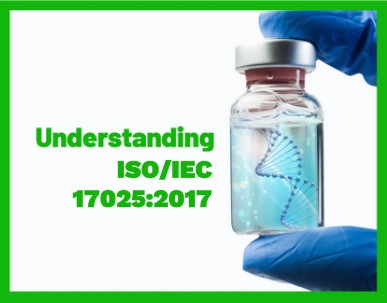Laboratory Management according to ISO/IEC 17025:2017 Standard
Laboratory management in accordance with ISO/IEC 17025:2017 standards

Quicklink
Overview
Accreditation under the ISO/IEC 17025 standard plays a vital role in supporting the production of accurate and reliable results from testing, calibration, sampling, and measurement services across various fields.
This is the international standard for laboratories, which laboratories must meet if they wish to demonstrate that they:
- Operate competently
- Are capable of producing valid results
- Can plan for and address risks and opportunities
- Can act objectively
- Maintain consistency in laboratory operations
Course Objectives
Upon completion of this course, participants will be able to understand:
- The requirements of ISO/IEC 17025
- How to practically apply the standard in testing and calibration laboratories
- How a laboratory management system should meet the standard's requirements to achieve quality results
- How to manage risks and opportunities to positively influence result quality and customer satisfaction
The course covers the requirements of the following clauses of ISO/IEC 17025:
- Scope
- Normative references
- Terms and definitions
- General requirements: Fundamental ethical concepts, including impartiality and confidentiality
- Structural requirements: Organizational structure to ensure effective laboratory management
- Resource requirements: Essential elements to perform laboratory activities
- Process requirements: Laboratory operations to ensure technically valid results
- Management system requirements: Management procedures to support quality results and effective laboratory operations
What will you learn
- ISO/IEC 17025:2017 Standard
- Developing a Laboratory Management System Documentation According to ISO/IEC 17025
- Internal Auditing for Laboratories
- Ensuring the Quality of Test Results
- Essential Skills for Laboratory Managers
- Measurement Uncertainty for Testing and Calibration Laboratories
- Internal Auditor Competency for Laboratory Assessments
- Selection and Validation of Methods
- Selection and Validation of Test Methods in the Field of Chemistry
- Selection and Validation of Test Methods in the Field of Biology
- Selection and Validation of Test Methods in the Fields of Mechanics, Electricity, and Construction Materials
- Risk Management in Laboratory Operations
- Decision Rule Implementation
Target Audience
This Course is Suitable for Anyone Who:
- Needs to understand the requirements of ISO/IEC 17025
- Is responsible for establishing their organization's management system
- Is in charge of ensuring the laboratory’s compliance with ISO/IEC 17025
- Works in a testing or calibration laboratory
- Holds a management or quality control role
This course is also beneficial for testing and calibration laboratories considering or currently in the process of achieving accreditation under the ISO/IEC 17025 program by the BoA (Board of Accreditation).
Register
For Government Regulatory Agencies:
- Enhancing State Management Efficiency:
By utilizing the results from accredited conformity assessment bodies, government agencies have a reliable tool for inspection, monitoring, and quality supervision. - Contributing to the development of a national quality infrastructure:
Accreditation is an essential component of the National Quality Infrastructure (NQI), supporting social- economic development, science and technology development and international integration. - Reducing the burden of verification and supervision:
Reducing the direct verification and supervision workload of regulatory agencies, as conformity assessment activities are periodically audited and evaluated by accreditation bodies. - Promoting the adoption of standards:
Accreditation encourages conformity assessment bodies and enterprises to apply and comply with standards and regulations. - Encouraging international integration:
Supporting regulatory agencies in participating in international agreements and fostering global integration.
For Society
- Promoting International Trade:
Through participation in multilateral agreements (ILAC/IAF MRA/MLA), results from organizations accredited by BoA are recognized in over 100 countries, helping to expand global markets. - Reducing Technical Barriers to Trade (TBT):
Assisting businesses in overcoming technical requirements of international markets, thereby boosting exports and cross-border trade. - Contributing to the Protection of Consumer Rights and Interests:
Accreditation activities support protect consumers by ensuring that products, services, and systems are evaluated objectively and reliably. - Improving the Quality of Goods and Services:
Accreditation promotes compliance with regulations, thereby enhancing the quality of goods and services available in the market. - Encouraging Fair Competition:
Promoting fair competition among businesses based on adherence to standards. - Building Consumer Trust:
Strengthening public and business confidence in the quality and safety of products, goods, and services. - Saving Time and Costs:
With international recognition, businesses reduce costs associated with repeated testing and certification abroad, shortening the time to market.
For Customers (Conformity Assessment Bodies)
- Enhancing Reputation and Competence:
Accreditation serves as independent and objective evidence of the competence of conformity assessment bodies, helping them demonstrate technical capability, management system effectiveness, and the ability to perform activities according to international standards. - Encouraging International Integration:
As BoA participates in international agreements under IAF/ILAC, organizations accredited by BoA can offer conformity assessment services recognized worldwide. - Increasing Competitiveness:
Accreditation enables organizations to assert their capabilities and create sustainable competitive advantages in the dynamic business environment. - Encouraging Continuous Improvement:
Accreditation activities encourage organizations to maintain, enhance their competencies, and update technical requirements, thereby improving the quality of conformity assessments. - Demonstrating Competence to Regulatory Authorities:
Accreditation results serve as objective evidence proving the organization's competence to governmental agencies.
